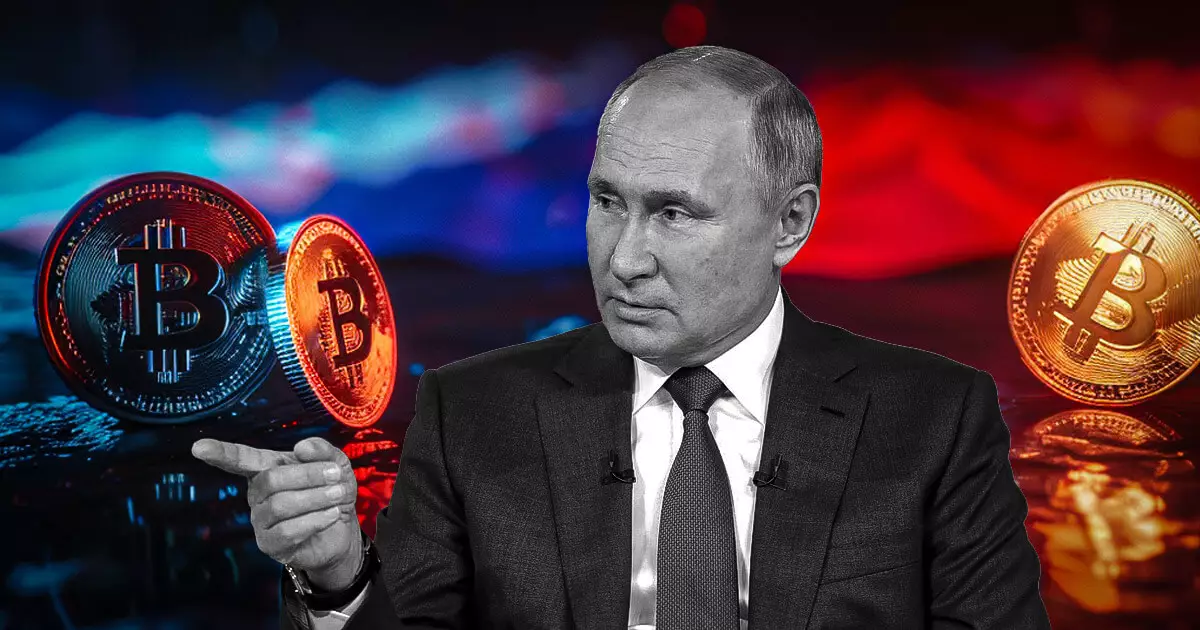In recent remarks, Russian President Vladimir Putin has positioned Bitcoin and other cryptocurrencies as pivotal agents of change in the global financial landscape. Speaking at the Investment Forum in Moscow on December 4, he proposed that these digital currencies could serve as essential tools for mitigating financial inefficiencies and bolstering economic stability. By advocating for Bitcoin as a potential global reserve asset, particularly in contrast to the traditional dominance of the US dollar, Putin underscores an emerging narrative about the future of finance—one that is less tethered to national currencies and more reliant on decentralized alternatives.
Putin’s critique of the US government’s use of the dollar as a tool for geopolitical leverage is a significant commentary on contemporary international relations. By stating, “Who can ban Bitcoin? Nobody,” he implies that the power dynamics which have long favored Western nations, particularly the US, are beginning to shift. The freezing of $300 billion in Russian reserves by Western powers, following the onset of the Ukraine conflict in 2022, has catalyzed a search for alternatives that promise greater financial autonomy. This context builds a compelling case for cryptocurrencies not merely as speculative assets but as instruments of national sovereignty, capable of liberating nations from the control exerted by traditional financial systems.
The recent enactment of laws in Russia that formally recognize cryptocurrencies as property reflects a progressive stance toward digital innovation. Through measures like tax relief on electronic transactions and exemptions for crypto mining, Russia is signaling its determination to create an environment conducive to technological advancement. This strategic pivot not only showcases Russia’s commitment to fostering innovation but also serves as a counterstrategy to external sanctions and pressures. As nations around the globe eye cryptocurrencies with increasing interest, Putin’s approach serves as both a tactical maneuver and a broader acknowledgment of the ongoing transformation in economic paradigms.
Bitcoin’s role has become increasingly crucial in the backdrop of the ongoing Ukraine conflict, where financial streams have been disrupted. The rise of cryptocurrencies enables individuals to bypass traditional banking systems, facilitating cross-border transactions amidst adversity. Such dynamics were echoed in discussions at the recent BRICS summit, where leaders recognized the potential of digital currencies in fostering seamless international payments and diminishing the stranglehold of traditional financial institutions.
As Putin champions cryptocurrency adoption, a parallel narrative is emerging in the United States. The incoming administration, led by President-elect Donald Trump, is reportedly exploring a pro-crypto regulatory environment, potentially leading to the establishment of a national Bitcoin reserve. This shift could catalyze a wave of regulatory reforms, prompting other nations to reconsider their own frameworks around digital currencies.
Putin’s endorsements of Bitcoin and the strategic legislative moves within Russia symbolize a broader quest for financial independence in an interconnected world. The evolving role of cryptocurrencies heralds a future where national currencies may no longer dominate the financial discourse, paving the way for a more decentralized, equitable, and resilient economic system.














Leave a Reply